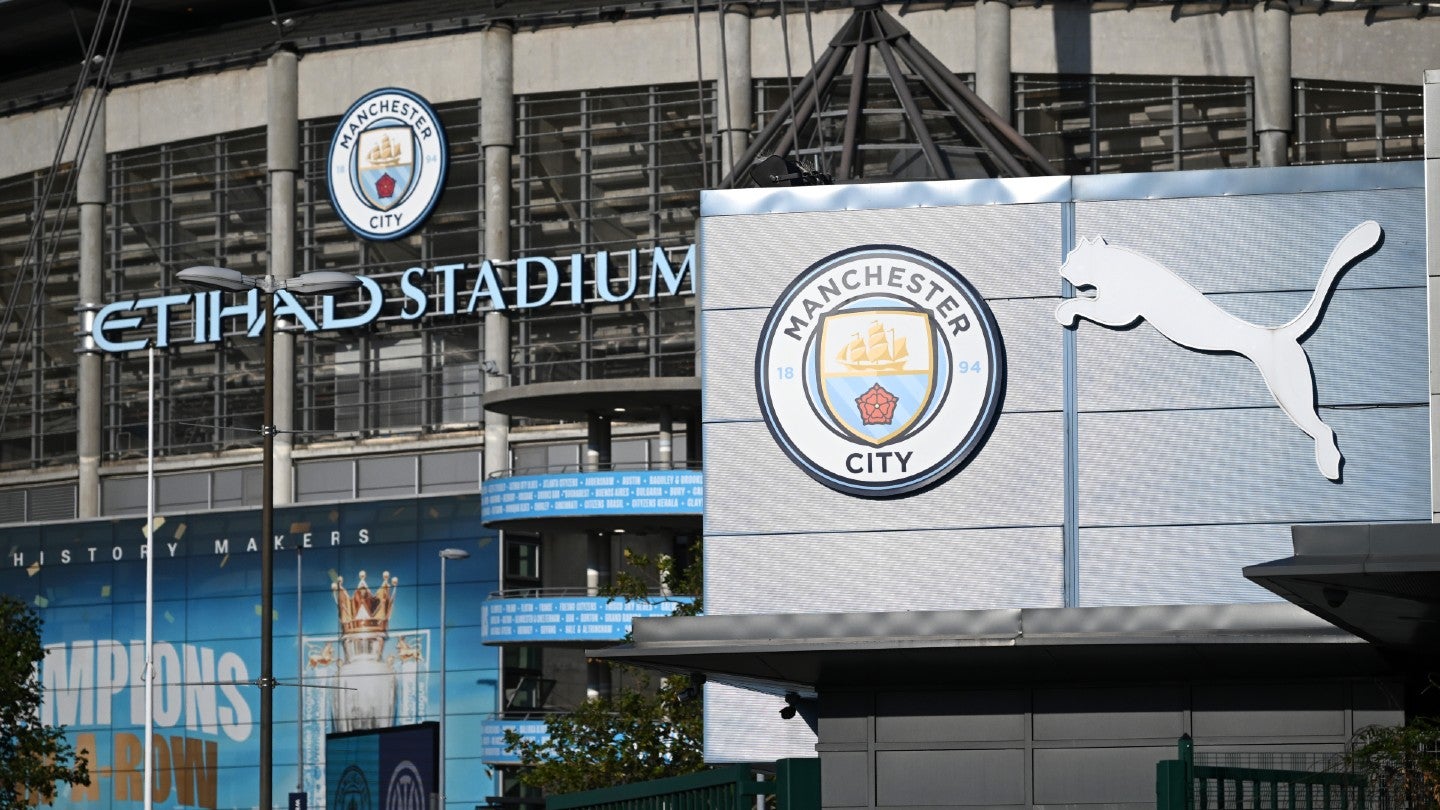English soccer giants Manchester City have claimed a small victory in their legal battle against the top-flight Premier League body and its rules over associated party transactions (APT).
That claim, however, was contradicted by the Premier League after the verdict delivered by a panel of judges at an arbitration tribunal appeared to confirm the necessity of APT rules and the competition’s right to enforce them.
Manchester City took legal action against the league earlier this year to challenge the legality, design, framework and implementation of the APT rules. The Premier League said the club was “unsuccessful in the majority of its challenge.”
The differing interpretations of the verdict adds another twist to the ongoing and layered legal fight between Man City and the league.
In a statement issued after the verdict yesterday, the Premier League said it “welcomes the tribunal’s findings, which endorsed the overall objectives, framework and decision-making of the APT system.”
The league, which has been publicly adamant that it emerged successfully from the trial, added: “The tribunal upheld the need for the APT system as a whole and rejected the majority of Manchester City’s challenges. Moreover, the tribunal found that the rules are necessary in order for the league’s financial controls to be effective.
“The decision represents an important and detailed assessment of the APT rules, which ensure clubs are not able to benefit from commercial deals or reductions in costs that are not at fair market value (FMV) by virtue of relationships with associated parties. These rules were introduced to provide a robust mechanism to safeguard the financial stability, integrity and competitive balance of the league.
“The tribunal did, however, identify a small number of discrete elements of the rules which do not, in their current form, comply with competition and public law requirements. These elements can quickly and effectively be remedied by the league and clubs. In the meantime, the Premier League will continue to operate the existing APT system, taking into account the findings made by the tribunal.”
In their own statement, meanwhile, Man City said: “The club has succeeded with its claim: the Associated Party Transaction rules have been found to be unlawful and the Premier League’s decisions on two specific MCFC sponsorship transactions have been set aside.”
The unlawful aspects, as determined by the tribunal, relate to the exclusion of shareholder loans from APT rules and the process by which clubs were informed of “benchmarking” decisions when assessing FMV.
These two subsidiary aspects of the regulations will, therefore, have to change. City have had APT sponsorship deals with airline Etihad and First Abu Dhabi Bank, rejected during the past year over a failure to achieve fair market value, set aside meaning they have a chance to be considered again under reformed rules.
The clearest victory for City, meanwhile, came in the challenge to rules on loans made by shareholders to their clubs.
This is despite the exclusion of shareholder loans from the APT rules having been voted in by 19 of the 20 top-flight clubs (including Manchester City) to encourage transparent investment.
The league argued the exemption was not discriminatory because any club could undertake such an activity. City, on the other hand, argued that such loans, which could be made either at no or low interest, were discriminatory and distortive. The arbitration panel agreed with City. The rules distort competition, the panel argued, because “they permit one form of subsidy … but not another."
The second victory for City related to a complaint that the league had not shared relevant benchmarking information at an appropriate point, denying the club the opportunity to feed back before a decision was made. This was upheld by the tribunal and will necessitate another rule change.
Ultimately, the tribunal determined that the APT rules are “necessary, pursued a legitimate objective and were put in place to ensure that the Profitability and Sustainability Rules (PSR) are effective, thereby supporting and delivering sporting integrity and sustainability in the Premier League.”
The tribunal also noted that “it is difficult to see how the PSR can be effective” without the APT rules, including the ability to restate transactions.
However, Man City have today accused the Premier League of “misleading” clubs with “inaccuracies” in their verdict on the legal dispute over APT rules as the ugly battle between the two takes another turn.
Information revealed as part of the verdict showed the case had split opinion among the other Premier League clubs.
Everton, Newcastle and Chelsea were revealed to have given witness statements in support of City’s claim, while Liverpool, Manchester United, West Ham United, Arsenal, and Brighton and Hove Albion made submissions in support of the league.
The verdict ends a process which began this year after the league revised its rules over APTs.
Earlier this year, EPL clubs voted in tougher rules around how these deals are valued, making it a requirement that FMV be independently assessed before such tie-ups are approved.
Essentially, this was done to stop teams from banking vast amounts through inflated sponsorship deals that are not at fair market value, and then using this revenue to avoid breaching PSR.
APT rules have been under the spotlight since late 2021 when Newcastle United were taken over by a group backed by the sovereign wealth fund of Saudi Arabia.
The APT case has no direct connection to the legal process which has seen the league charge City with 130 breaches of its rules. City have denied wrongdoing and lawyers began hearing that case on September 16, with a verdict expected in the new year.
The 130 charges against City were issued in February last year, with some of the alleged breaches relating to income secured by City reported as being from various Abu Dhabi-linked sponsors.
Some of the charges date back to 2009, and between them cover every season consecutively between 2009-10 and 2017-18.
City have always denied any wrongdoing whenever the subject of the investigation has raised its head and continue to state their innocence.









